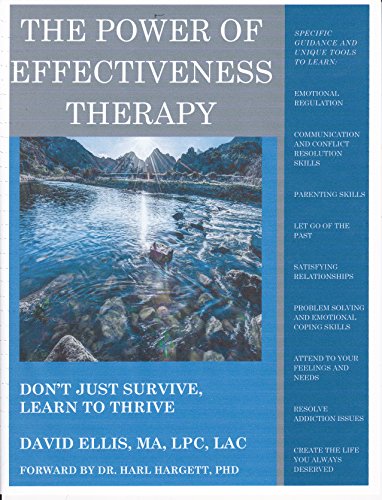THE POWER OF EFFECTIVENESS THERAPY is a mind-churning, well-written overview of the many schools of psychological thought. Each chapter is logically set up in a way that conveys a types of therapy with excellent citation and incredibly in-depth research. Even more intriguing is the personal background of author, David Ellis, who, in his introduction, has the gumption to reveal his demons through personal anecdotes – one such personal issue being his addiction to alcohol.
Ellis’ willingness to come right out and disclose his life is both commendable and brave; and most important, he makes the reader comfortable with the subject matter. In a time whereby mental illness is one of the most pressing worldly causes, books like these seek to provide a moral and ethical framework to be absorbed and subsequently practiced.
Furthermore, Ellis has done something unselfish and kind for those seeking therapy outside literally meeting with a psychologist – and given the financially state of affairs for countless people, his decision to compile some of the most mentally beneficial information is doing a service for those less well-off. However, for the casual reader, the vocabulary usage and terminology can be a bit esoteric.
The book covers therapy frameworks, such as AA and Psychoanalysis, and also delves deep into brain development, from birth to adulthood. Other manners of thinking are discussed as well, with balance seeming to be the implied method of treatment. For example, the Socratic Method and non-black and white parenting are highlighted. In both of the aforementioned examples, emotions are de-prioritized when compared to finding a common ground solution. Rather then parent based on “what your parents did,” the book reveals the need for parents to “parent in the present.” Ellis’ emphasis on balance and respectful dialogue with the included schools of therapy makes the book even more appealing.
~Jason Newell for IndieReader

